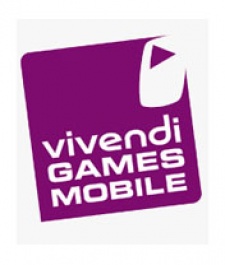It has to be said, one of the key takeaways from Vivendi Games Mobile's talk at the BREW 2008 show on how to work better with your carriers was this: be part of a huge console publisher giving plenty of opportunities for in-box and email marketing.
Ah well.
But thankfully, there was other useful information that wasn't quite so specific, and some interesting nuggets on how Vivendi is co-marketing its mobile games with US operators.
It helped that the talk was given by VP of marketing Maria Pacheco and VP of sales Lou Fasulo, who've respectively done time in Sprint and Cingular's games teams.
Pacheco kicked off with some info on Vivendi's use of Web 2.0 to promote mobile games, which the carriers apparently love (Verizon told the publisher that "Facebook is big with our SVP, he wants us to get in there and have some visibility").
So, Vivendi co-branded its Facebook widget for Surviving High School 07 with Verizon, slapping the carrier's logo on the top.
The game has more than 30,000 friends on the major social networks according to Fasulo, and where Vivendi has offered a demo of the game, it's generating a conversion rate of 20%, contributing to the more than nine million content packs that have been downloaded by the game's players.
One thing worth highlighting is the fact that Vivendi did all this social media promotion around the game, and it's since become the first original IP to hit number three on Verizon's top sellers chart. Co-incidence? Surely not.
Back to Pacheco, who explained that Vivendi's also been hitting YouTube with its promo trials, creating a viral video to promote The Incredible Machine that made it into the Top 20 most-viewed videos on YouTube one day.
Other stuff that Vivendi's been doing in-house is plugging its mobile games in the newsletter that its Sierra Games division sends out to more than one million subscribers every month, as well as the mobile division running its own newsletter which goes out to 50,000 subscribers.
An interesting exernal campaign was for Vivendi Games Mobile's SWAT game. "We did some non-traditional media buys on websites you might not see advertising for mobile gaming on," said Pacheco.
"We ran banners on Military.com, WarGamer and Armchair General. Everybody can go out and advertise on Yahoo Games, MSN and Shockwave, but we're trying to reach people who are not downloading mobile games now. The carriers really appreciate it."
Vivendi will also have a shortcode promotion for its upcoming The Bourne Conspiracy game on the back page of the manual to the Xbox 360 console game (possibly other consoles too, but the 360 was the one they showed).
"We couldn't put some carrier logos on there though, as there were some political issues with Microsoft that have to be worked around," said Pacheco.
It's something I've heard from other publishers before looking to do cross-platform marketing and get the operators involved - and then squaring this with Sony, Microsoft or Nintendo. Or not, as the case may be.
Fasulo had an interesting anecdote from his time at Cingular, though. It was a promotion with Gameloft where they got Ubisoft to put a shortcode to get a Splinter Cell mobile game inside the console version itself.
"They had some spraypaint on the wall in one location saying SAM TEXT HERE, and players would see that for three to four minutes while in that place," he said.
"We sold four to five thousand units through that thing. It didn't make a big dent, but that was 2004. It's 2008 now, so those opportunities are going to have a much higher ROI."
It'll be interesting to see if Vivendi does this in any of its own titles in the near future. Maybe monsters could rush up to you in World Of Warcraft shouting 'TEXT 654321 FOR URBAN ATTACK!'. Or perhaps not.
Fasulo said he (and more importantly carriers) are really excited about the potential for connectivity, and he cited Guitar Hero III Mobile specifically as an example. Wonder when Vivendi/Activision is getting the mobile licence back for that...
Fasulo is also very keen on recurring content, like the content packs being offered every two weeks for Surviving High School 08.
He revealed that people are on average staying subscribed to it for seven months - which if they're paying around $3 per month, is a healthy $21 of revenue per player over the lifetime of the game.
Lastly, Fasulo answered my question about ad-funded games, and how experimenting with those affects a publisher's relationship with operators. Vivendi is offering games through Greystripe, for example.
Well, not full games, it turns out. "We've provided a number of our demo versions to Greystripe, wrapped in an advert. When the consumer plays that game, they're driven back to the carrier decks to buy it," he said.
"Greystripe has an audience that are not buying games already, but are looking for our demos, trying them, and then buying the game from their carrier."
That's an interesting take on the ad-supported model, given that a lot of other mid-tier publishers have opted to use older full games instead (and the Big Three haven't opted to do anything).
The one thing not covered by Pacheco and Fasulo in their presentation was to flip the question around and say what the carriers could be doing to better work with publishers.
But as they pointed out, most conferences are full of complaints about what operators could be doing better, so perhaps it was refreshing to leave it out this time.
BREW 2008: Vivendi Games Mobile talks carrier satisfaction
Gaining it, keeping it, working it...




















